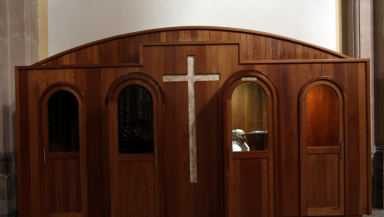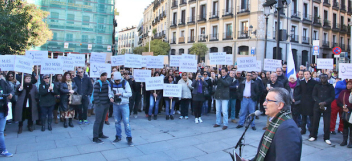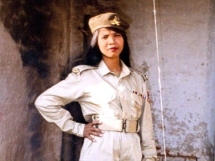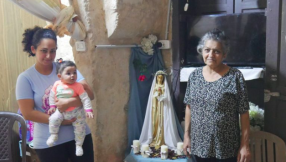
Armed villagers raided and destroyed the homes of Protestants in Leyva Velazques village, Chiapas, Mexico on 4 January in the latest example of religious persecution in the country, according to a human rights organisation.
Entrances into the village were blocked by locals forcing the Protestants to flee to the nearby mountains rather than seek help in a neighbouring village, Jorge Lee Galindo, Director of Impulso 18, told International Christian Concern (ICC).
Two men, the commissioner of the community, Jimenez Hernandez, and the municipal agent, Francisco Jimenez Santiz, are thought to be responsible for inciting the violence.
This is not an isolated incident in the village. According to ICC, seven Protestants were arbitrarily imprisoned when they refused to renounce their faith in December 2015.

Protestants are a minority religion in Mexico and "in the rural areas where we see persecution, many villages and their councils are dominated by adherents to syncretistic Catholicism," ICC's advocacy manager, Nathaniel Lance, told Christian Today.
Syncretistic Catholicism is a religion formed of components of Catholicism and indigenous beliefs and rituals.
The victims of persecution are "on the fringe of Mexican society", Lance said.
"As non-Spanish speaking, rural, Protestant Christians, they have no access to the financial, legal, or political resources necessary to end the persecution they suffer."
Persecution is likely to continue "as long as the Mexican government continues to ignore [it], and refuses to prosecute those responsible", Lance added. He said the government is unlikely to engage with the persecution as "there is no political incentive to take action".
Despite Mexico's consitution protecting freedom of worship, the government uses the Law of Uses and Customs – which states that indigenous culture and customs should be protected – as an excuse not to act.
"They use this to say that the persecution in these areas are part of the indigenous culture," Lance said.
"There is little media or governmental attention paid to these cases both internationally and in Mexico, which is why raising awareness of persecution is vital."
ICC staff visited Mexico last year and conservatively estimated that there were over 70 open cases of religious persecution against minority Christian communities, with between 20 and 100 victims each, in the states of Chiapas, Hidalgo, Oaxaca, Puebla and Guerrero. This equates to thousands of victims and only represents incidents that have been reported.
The persecution often begins with "financial disagreements, where village leaders want the Protestants to pay for the religious festivals, and other things used for syncretistic Catholic rituals," Lance said.
"When the Protestant Christians refuse to pay, these situations then escalate to attempted forced conversion, imprisonment, forced expulsion from homes, burning of houses and violent threats."
It is important to note that the Protestant community is not the sole victim of persecution in Mexico. In 2014, more Catholic priests were killed in Mexico than anywhere else in the world, typically in cartel-related violence.















